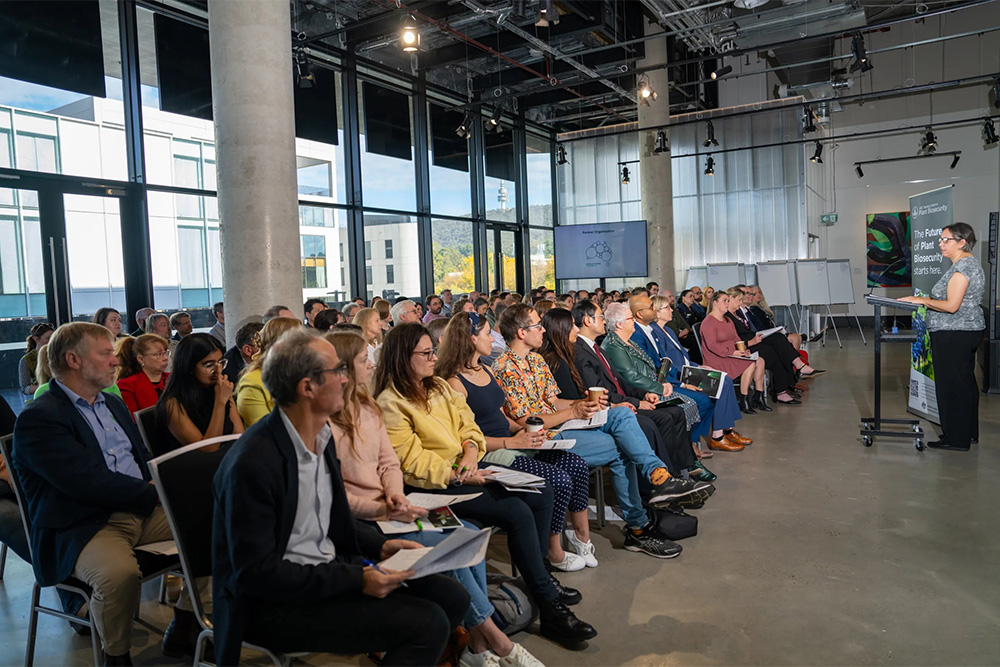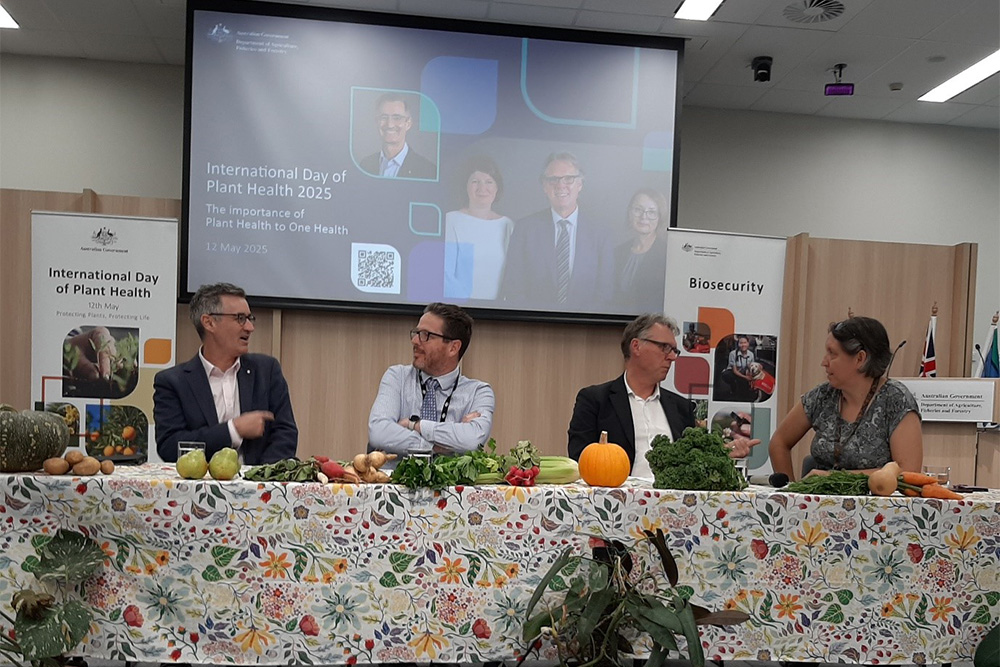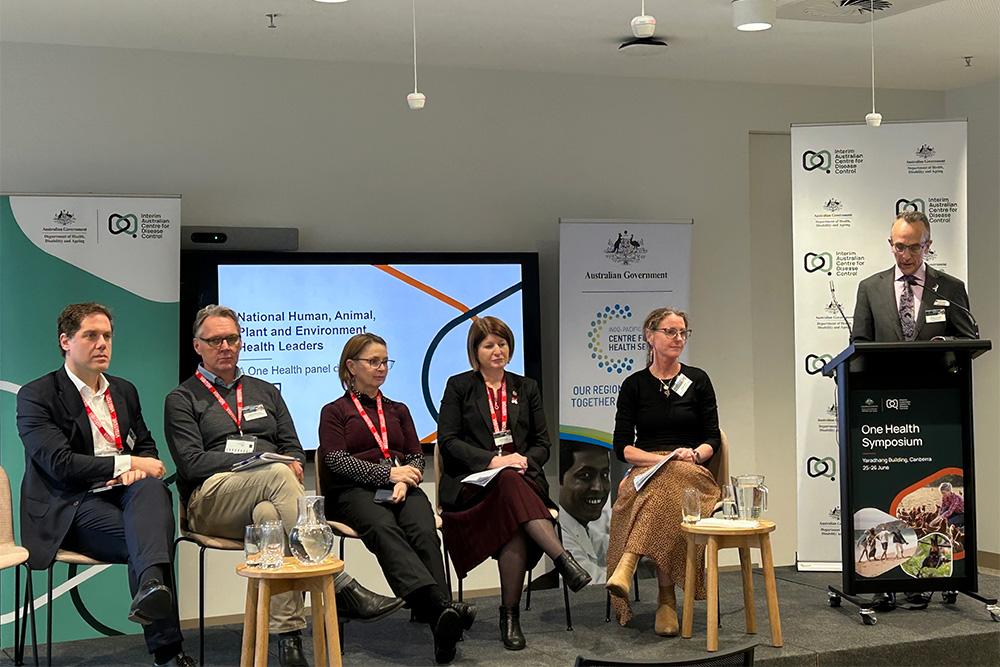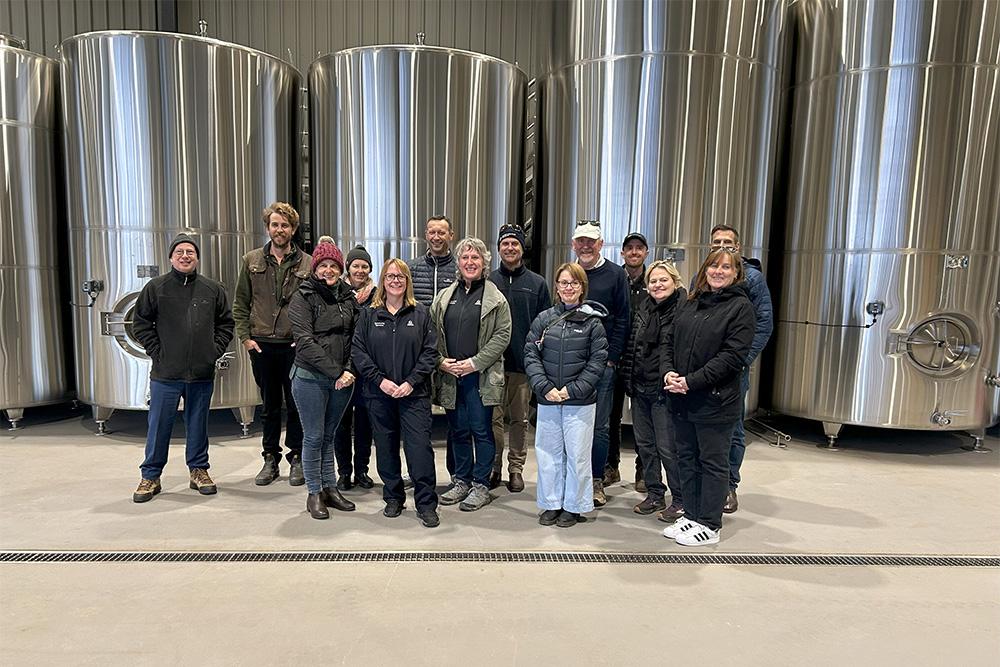The fifth annual International Day of Plant Health was celebrated on 12 May, with the global theme of the importance of plant health in One Health – an integrated, unifying approach that recognises the interconnectedness of human, animal, plant and environmental health. Plant health is the foundation for life on our planet and is intrinsically linked with human, animal and environmental health.
“The One Health approach recognises the intricate web of life and reinforces that plant health is vitally important, because healthy plants means healthy animals, communities and the environment we all share. Anything that disrupts plant health, such as pests and diseases, can therefore impact how we live,” said Dr Gabrielle Vivian-Smith, Australian Chief Plant Protection Officer.
Australia’s robust biosecurity system protects our plants from exotic pests and diseases, and ongoing research into plant health and biosecurity risk management is vital to learning more about how best to protect the health of our plants.
On the International Day of Plant Health, members of the department joined other dignitaries to attend the launch of the Australian Research Council (ARC) Training Centre in Plant Biosecurity at the Australian National University, which will host post graduate research beneficial to plant health and biosecurity in Australia. The Centre is funded by the Australian Research Council, three universities and 27 partner organisations including the department.
Assistant Secretary for Plant Health Policy Dr Susie Collins spoke at the event, underlining the importance of plant health and initiatives such as the ARC Training Centre in Australia’s biosecurity system.
“We recognise the importance of training the plant biosecurity leaders of tomorrow to be able to meet Australia’s future biosecurity challenges, and also of facilitating the transition of research into tangible outcomes that directly improve Australia’s plant biosecurity,” said Dr Susie Collins.
“The department deeply values our involvement as a partner with the ARC Training Centre in Plant Biosecurity and the important benefits that will grow from this partnership to Australia’s plant health and biosecurity system.”
The department is co-supervising six PhD and two Post-doctorate research scholarships at the Centre, including topics focussed on exotic fruit flies, plague locusts, surveillance systems and plant disease diagnostics.
Later in the day, the department’s Secretary, Adam Fennessy, opened a departmental afternoon tea event for staff at Agriculture House, including many who joined remotely online.
“Protecting plant health can help end global hunger, reduce poverty, protect biodiversity and the environment, and boost economic development. Healthy plants are crucial to Australia’s economic and social future, and key to the work we do across the department - from plant protection and biosecurity to food security, agricultural sustainability, sector growth and trade,” said Mr Fennessy.
The department’s AGapellas choir book-ended the event, sharing some of their plant-themed music. The event also featured a panel discussion focusing on the relationship between plant health and One Health involving Dr Gabrielle Vivian-Smith, Dr Susie Collins, the Australian Chief Environmental Biosecurity Officer Dr Bertie Hennecke and the Deputy Australian Chief Veterinary Officer Dr Sam Hamilton.





